#Ranta
Text
It pisses me the fuck off how streaming services are trying to put in adds, when the WHOLE POINT of streaming services are TO WATCH THINGS WITHOUT ADDS.
They’re just tuning it into slightly more convenient cable at this point.
176 notes
·
View notes
Text






11 notes
·
View notes
Text

#Bedruary Day 19 - Staying Up Late
22 notes
·
View notes
Text

a quick lil work between my big works, lesgoo
Ranta and Yume are best couple, sue me!
#grimgaroffantasyandash#grimgar#artwork#digital art#digital illustration#drawing#couple#yume#ranta#hugging#red hair
14 notes
·
View notes
Text
they were sleighing fr

7 notes
·
View notes
Text
Krasa Rosa, Ranta, Miroshin — Kolybelnaya
Melody Of The Soul, 2023-05-19
show some <3 @ Beatport / Apple Music
#organic house#deep house#electronic music#music blog#music on tumblr#Krasa Rosa#Melody Of The Soul#Ranta#Miroshin#neo soul#SoundCloud
0 notes
Video
undefined
tumblr
Paula Ranta
#Paula Ranta#fbb#female muscle#girlswithmuscle#girls with muscle#female bodybuilder#female bodybuilding#muscle girls#muscle women#fbbmuscle
250 notes
·
View notes
Text
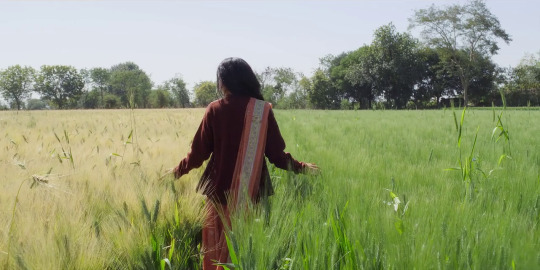
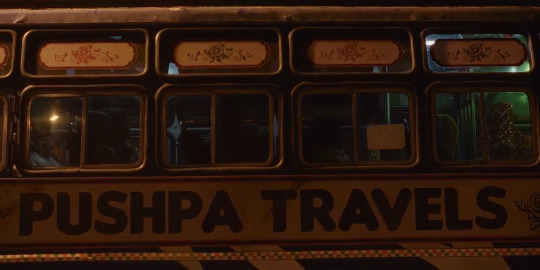
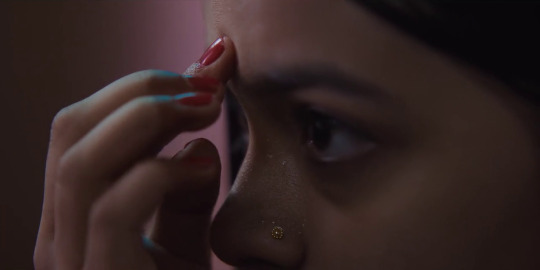
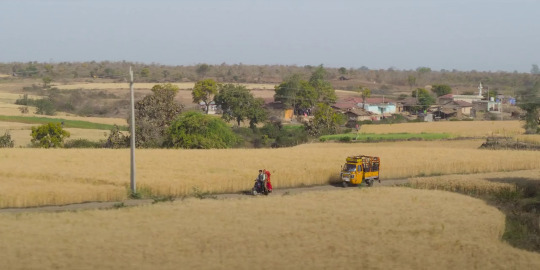
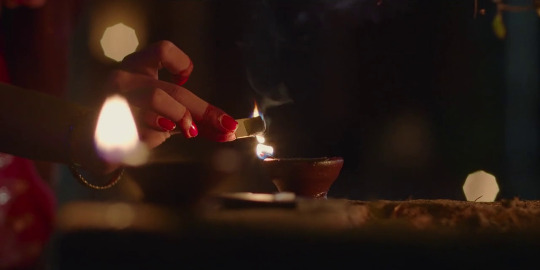
Laapataa Ladies (2023) | dir. Kiran Rao
#Laapataa Ladies#Laapataa Ladies 2023#kiran rao#Nitanshi Goel#Pratibha Ranta#Sparsh Shrivastav#indian cinema#hindi cinema#bollywood#cinema#movies#films#world cinema#cinematography#2020s#2023#south asian cinema#asian cinema#cinephile#indian movies#bollywood movies#hindi movies#aesthetics#aesthetic#indian films#hindi films#bollywood films#landscape#film scenes#movie scenes
274 notes
·
View notes
Text




PRATIBHA RANTA as Jaya Tripathi Singh/Pushpa Rani in LAAPATAA LADIES लापता लेडीज (2024) dir. Kiran Rao
#laapataa ladies#pratibha ranta#filmedit#doyouevenfilm#fyeahmovies#bollywoodedit#dailybollywoodqueens#userrobin#useraurore#usershreyu#userrajan#baawri#filmgifs#dailyworldcinema#userladiesofcinema#dailywoc#tusereliza#fuckyeahwomenfilmdirectors#ours#by sj
169 notes
·
View notes
Text
I don’t normally like to vent about myself or my life. But everything just feels like it’s spiralling for me and I just don’t know what to do. This is probably as personal as I’ll ever get on here haha.
I might eventually delete this. But I don’t know..
CW: personal life, SH and Sui talk
Right now my country Canada is entering late stage capitalism, as well as the US. It sucks, yes. But I figured that by the time I’m out on my own and I’m able to fend for myself, that most of this would blow over and I will be fine. But now it’s getting hard to think about stuff like that.
I believe I have undiagnosed autism and currently undiagnosed ADHD (was diagnosed as a child), which makes a lot of things hard for me. I’ve been wanting to get a diagnosis to help myself for the future. But I’ve been constantly told not to, as doing so would make people think less of me. And I hate that people have that mindset, even if it is true.
Something that is worse is that I can’t pay for anything. I can’t pay off my loans because it’s too high. I don’t even have a job to pay them off, I can’t even get a job because of my autism and because the job market is fucked. I’m moving to a whole other country really soon that I know nothing about so there’s no point in me even doing my schooling here anymore, the only reason I’m still going is because my dad wants me to. And if I don’t pay off my loans, my credit will be put in the “risk” category, credit mind you that I don’t have because I don’t have a credit card.
I cant even speak the language to the place I’m moving too, so I don’t know if I would even be able to get a job there other than just a cleaning person. And even if I come back here to Canada if I do my schooling there, I don’t know if I would be able to get a house because the housing market is absolutely terrible here.
If I stay here in Canada I have basically no one to fall back on if things turn to the absolute worse for me, and it really feels like life wants that to happen to me. I wasn’t really told much about life stuff as a kid, so now it’s biting me in the ass and I’m paying for it. I know I’m still stable at the moment, I have a house and food and water. But every day I hear more and more worse things.
I used to live out of spite, but now that spite is starting to fade on me. I can’t lie and say that I have thought the worst about myself, what I want to do to myself. I’m terrified of death, but sometimes it seems like the more favourable option. People always say to stay in the present, that’s what matters. It’s hard to stay in the present when the future keeps looking bleaker and bleaker.
I try to stay positive, that I will be okay in the end. I want to believe that I’ll be okay. But it’s getting harder and harder to see that
Everything feels like its burning around me and I don’t know what to do. It feels like it’s all my fault. That I’m just gonna die homeless and alone.
I’m sorry that this is so much more negative compared to what I normally post. Everything just feels so terrible and I don’t know what to do. I shouldn’t be feeling like this, I’m a young adult and yet I’m so worried about everything that it would all crash around me. Every time I feel even remotely stable, it feels as though life just kicks the rug under my feet and fucks everything up for me.
I want to feel okay again. But I don’t know if I ever will be.
#text post#ranta#personal life#vent#CW: self harm talk#cw: sui mention#I know I’m mostly feeling like this cause I’m hungry and it’s past 9 rn#but still I feel like absolute shit
57 notes
·
View notes
Text




S-Sorry!
4 notes
·
View notes
Photo

It's Bunny Day on Bunny Year! Calls for more bunny suits!Happy Easter everybunny!
Everybody. Sorry.
11 notes
·
View notes
Text

Highway , Summer Night - Jamie Ranta, 2015
Finnish, b. 1986 -
Acrylic on canvas , 119 x 163 cm.
602 notes
·
View notes
Text
[...] [F]ood culture, because of its ubiquitous and everyday nature, can serve as a medium through which to examine issues concerning how the imagined community is perceived (internally by its members, and externally by others), expressed, engaged with and maintained as well as [to] point out processes and trends that are [...] generally overlooked in the study of identity, nationalism and culture. Additionally, food culture is [...] a useful tool for examining issues concerning the place of indigenous people and their culture, and I would add the other, within the national culture and narratives of settler colonial societies, of which Israel is an example. This includes issues relating to cultural appropriation as well as inclusion and exclusion from the nation.
The relationship between food culture, Zionism and the creation of a new Jewish-Israeli national identity might not appear strong at first. However, from the onset of the Zionist project, food played an important part in the construction of a new Jewish and later on Israeli identity, including its collective memory, national psyche and political aspirations. According to Raviv, from the early stages of Zionism, food was one of the main elements used for national boundary setting and the establishment of a separate Jewish political and economic society in Palestine. Many of the symbols of the new Jewish identity in Palestine, and after 1948, Jewish-Israeli identity, are food related: from Sabra (prickly pear, the name given to a Jewish-born Israeli) and Jaffa oranges (one of Israel’s symbols of production and primary exports), to postcards depicting a pita with falafel and the flag of Israel (one of Israel’s most recognisable postcards) and cottage cheese—a product that has been shortlisted as one of the main symbols of the state of Israel.
This relationship between food and Zionism is also apparent in the historical importance attached to food production, especially agricultural produce, and consumption. In their attempt to establish a separate Jewish society and economy in the pre-state period, Zionist leaders tried to regulate agricultural labour and produce, in order to, among other things, exclude Arab labor and produce. Jewish businesses and private individuals were therefore pressured to buy and consume Jewish only produce. The Zionist emphasis on Jewish only produce, from the Hebrew banana to the Hebrew butter, drew a clear link between national identity, food production and consumption and communal boundaries. This link is still evident in the symbols and coat-of-arms of many of Israel’s cities and regional councils, which are dominated by and or include agricultural tools, fields and orchards and specific agricultural produce.
De-Arabizing Israeli Food Culture
[...] What is interesting about Israeli food writers musing about the origins of and contributions to Israeli food culture is that they provide an indication of the dominant discourse used by the Jewish community in Israel. This discourse, while highlighting the various contributors and contributions to Israeli food culture, omits or fails to mention either an Arab or an Arab-Palestinian element. There are different manifestations or layers to these omissions, the most glaring of which is the presentation of Arab-Palestinian food elements and items present in Israeli food culture, for example hummus and falafel, as part of the Mizrahi-Jewish culture and so as part of Jewish tradition. Other layers of this omission include the representation of Arab-Palestinian food as belonging to a Jewish Israeli food culture; the representation of Arab-Palestinians as vessels that enabled the preservation of older Jewish-biblical traditions; and the depiction of the territory between the Jordan River and the Mediterranean Sea, which includes the West Bank, as either Israeli or part of the Land of Israel (Eretz Yisrael).
The failure, either by design or by default, to mention the Arab and Arab-Palestinian people and their contribution to Israeli food culture is prevalent and present in most Israeli cookbooks. In fact, until very recently you would have been hard pressed to even find the words Arab and or Palestinian in Israeli cookbooks and food writing. This state of affairs is particularly striking when one takes into account the importance Arab and Arab-Palestinian restaurants, food terminology, dishes and culinary items have in everyday Israeli life and culture, and the fact that a significant number of dishes identified by leading Jewish-Israeli chefs as national dishes are also part of the Arab-Palestinian kitchen—one of these chefs even identifies the “Arab salad” as Israel’s national dish!
Mendel and Ranta argue that two related historical dialectic processes have shaped Zionist and, after the creation of the state of Israel, Jewish-Israeli attitudes towards Arab and Arab-Palestinian food culture. On the one hand, the construction of a “rooted,” “modern” and “native” Israeli food culture was based on fascination with, leading to adaptation, imitation and appropriation of, Arab Palestinian culinary elements, while, on the other hand, Israeli food culture went through a process of de-Arabization—that is to say, the Arab-Palestinian contribution had been erased and overlooked. As the conflict between Zionists and Arab-Palestinians intensified, the balance shifted from fascination and adaptation, to appropriation and de-Arabization, in line with the Zionist aim of replacing the Arab Palestinian people in Palestine, rejecting their political aspirations and establishing a separate Jewish polity.
Early Zionist settlers came to Palestine to establish not only a new state, but also a new nation. In terms of food, this meant rejecting the heavy slow-cooking traditions of Eastern Europe for a lighter, and, in line with the then prevailing concepts of nutrition, also healthier, diet based on dairy products, raw fruit and vegetable and less meat. According to Claudia Roden, “the early pioneers and the first immigrants from Europe … were happy to abandon the ‘Yiddish’ foods of Russia and Poland as a revolt against a past identity and an old life … and foods that represented exile and martydom.”
One of the mechanisms of creating the new food culture was adapting and imitating the local Arab-Palestinians, and to some extent also Bedouin, food traditions and culture. It is important to note, in a similar fashion to other settler-colonial groups, that adaptation and imitation was done at times out of choice, at times out of necessity.
– Ronald Ranta, "Re-Arabizing Israeli Food Culture." Food, Culture & Society 18(4):611-627 (December 2015). DOI: 10.1080/15528014.2015.1088192
267 notes
·
View notes
Text


Laapataa Ladies (2024)
Laapataa Ladies made my heart so full <3 honestly such a beautiful movie 😩
#in Aamir Khan we trust 🫶#laapataa ladies#pratibha ranta#sparsh srivastav#nitanshi goel#aamir khan#bollywood#desiblr#desi tumblr#feminism
108 notes
·
View notes